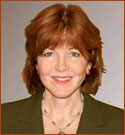 Jo Ann Towle, M.A. , is a strong advocate of the Systemic Family Intervention model, having conducted thousands of assessments and interventions for addictive families. She believes in coaching and empowering families through a healthy intervention process that is open, honest, inclusive, and respectful. She consults and conducts trainings for professionals throughout the United States. Jo Ann has worked at every level of treatment, from outpatient to residential and inpatient. She received her Masters in Consulting Psychology from John F. Kennedy University in 1990.
Jo Ann Towle, M.A. , is a strong advocate of the Systemic Family Intervention model, having conducted thousands of assessments and interventions for addictive families. She believes in coaching and empowering families through a healthy intervention process that is open, honest, inclusive, and respectful. She consults and conducts trainings for professionals throughout the United States. Jo Ann has worked at every level of treatment, from outpatient to residential and inpatient. She received her Masters in Consulting Psychology from John F. Kennedy University in 1990.
She helped found the first national association of interventionists (AIS) in 1992, now the international Association of Intervention Specialists. In 2008, believing that families are best served by interventionists independent of any treatment center affiliation, she helped found and remains a member of the Network of Independent Interventions (NII), a smaller but growing group of interventionists nation-wide.
In contrast to confrontational “quick fix” interventions, Jo Ann’s Systemic Family Intervention ensures an inclusive, non-conspiratorial, and family-centered experience. Her respectful approach is a process rather than a single high risk event. Each family is recognized as unique with its own set of challenges, requiring a specialized intervention conducted with utmost care and professionalism. Individuals and families are empowered to take a stand against the destructive influences of addiction, and lead the way toward health and true recovery.
Background
It never made sense to me that “an alcoholic has to hit bottom.” I chose sobriety/recovery/recognized my alcoholism at the age of 29. I recognized its impacts on my life and I “declared my bottom.” One might call it a “high bottom.” When by chance I was introduced to the concept of “intervention” it made total sense to me and I knew I had stumbled on my life path. I was fortunate to be there at the forefront of intervention as a developing “art” if you will (for it is an art) and eventually, thanks to tremendous opportunities that came my way, it became a full-time practice that has blessed and sustained me for 25 years.
Originally on track to work in TV newsrooms as a producer/reporter, I took a 180 degree turn to pursue “this thing intervention” that caught my attention and imagination as way to assist those stuck and hurting and held down as I felt I was by alcohol dependency. It was simple as that really. The freedom I felt from that “attachment” to substance alcohol was such a revelation and joy, I wanted to share it and learn: how do you reach someone in addiction’s grip? How do you get through that denial when dealing with such a “cunning, baffling, powerful” disease?
The academic degree I chose was a Masters in Consulting Psychology with a focus/thesis on intervention. I worked in CA addiction treatment centers in the late 1980s/early 1990s: Forest Farm in Marin County; Parkside Recovery Centers in Sonoma County; Women’s Woodside Psychiatric. After those years of amazing and varied intervention opportunities both at the centers and “in the field” I then established the “Family Intervention Institute” and later “Family Intervention Associates.” We facilitated adolescent interventions, elder alcoholic bedside interventions; cocaine/meth/other drug interventions “in the field,” at hospitals, psychiatric wards, in homes, at ranches, hotels, casinos; you name it, interventions in all kinds of settings.
My Belief
I am privileged to have been a founding member of the now international Association of Intervention Specialists (AIS) and Network of Independent Interventionists (NII). These collegial support organizations offer resources, referrals, education, and training.
The trainings I offer periodically are “Systemic Intervention” trainings; that is to say, interventions that are a family-focused process (vs. an addict-focused event); interventions designed to empower and assist an entire family in need of direction and healing; not solely focused on the addicted family member and his/her need for treatment (see “Effective Intervention” to learn more).
These days I’m most interested in what will sustain recovery. I have found that the “quick fix” interventions yield short term relief and often times short term recovery, whereas interventions focused on the system, (the “supporting cast of characters”) are the ones tending to yield more lasting recovery and not just relief post-intervention, but a needed trust that builds over time, a trust in the recovery that helps bridge broken relationships.
I have a love for alcoholics in particular. People laugh when they hear that but it is true. Underneath whatever that depressant alcohol is masking, is a hurting, ultra sensitive, and wounded person who yearns for connection and to be understood, and achieve a happy productive life. Alcohol is a marvelous “fix” initially until it turns on us. It always does, if you’re an alcoholic that is. So if you have read this far, and you are concerned about someone’s drinking, even your own, I hope you’ll pick up the phone and call me. If I can’t help you I surely hope to find someone who can. There is good, effective help out there no matter your situation or circumstances. “One step at a time” and you will feel hope, get clarity, and just perhaps a new bright dawn.